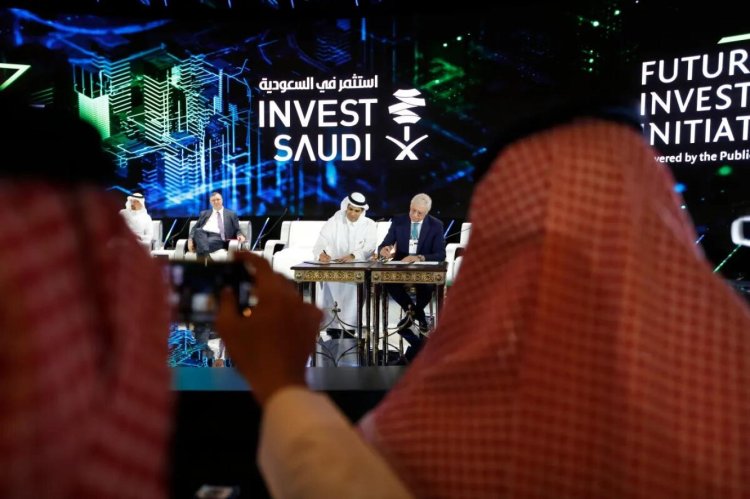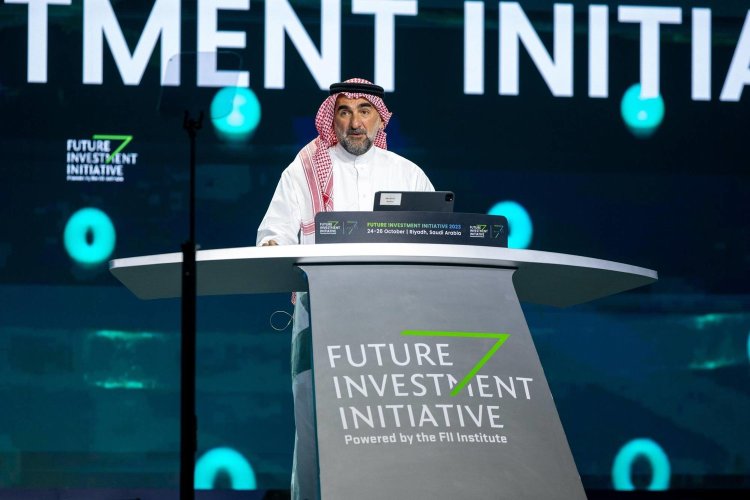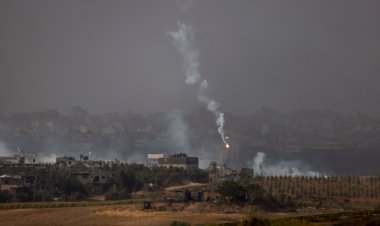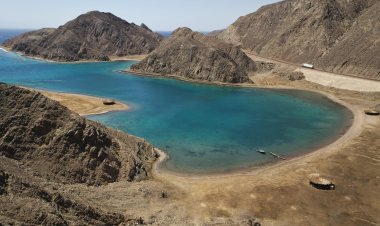$33 billion in foreign investment flows in Saudi Arabia in 2022

Foreign direct investment flows in Saudi Arabia during the past year amounted to about 122 billion riyals ($32.52 billion), according to what the Saudi Ministry of Investment announced on Tuesday, an upwardly revised number compared to eight billion dollars according to what was previously published.
According to what was reported by the Saudi Press Agency, the updated figure comes within the framework of a new methodology for counting and publishing data adopted by the Kingdom last October, and approved by the International Monetary Fund.
G20 economies
This new figure places the Kingdom in tenth place among the G20 economies in terms of attracting foreign direct investment flows during 2022, according to a statement by the Saudi Ministry of Investment.
In order to reach the updated numbers, Saudi Arabia analyzed the data of more than 10,000 foreign companies, based on more than 70,000 financial statements, covering the years from 2015 to 2022, according to a statement by the Saudi Ministry of Investment.
Under the new methodology, the balance of foreign direct investment in the Kingdom reached 775 billion riyals ($207 billion) in 2022, which places Saudi Arabia in 16th place among the economies of the G20 countries, a number downwardly revised compared to one trillion riyals ($269 billion), according to What was previously published based on the previous methodology.
The Ministry of Investment statement stated, “Despite the impact of the (Covid-19) pandemic, the updated data showed a positive and rising increase in the balance and flows of foreign direct investment in the Kingdom since the launch of Saudi Vision 2030.”
The Saudi Minister of Investment, Khalid bin Abdulaziz Al-Falih, said, “The Kingdom is committed to creating an investment environment that is considered the best in the world in all aspects, including working on a transparent and world-class methodology for compiling and calculating foreign direct investment statistics.”

New investment system for 2023
The Kingdom of Saudi Arabia has opened its doors to local and foreign investors through the new investment system for the year 2023. Despite the facilities and benefits provided, there are necessary conditions to benefit from this system, as investors must achieve the following:
1. Select a permitted investment activity and verify that it is not among the excluded activities.
2. Adherence to the terms and conditions recorded in the license application.
3. The product conforms to Saudi standards.
4. Achieving investment objectives and complying with investment policies.
5. Not committing previous financial or commercial violations inside or outside the Kingdom.

Documents required for foreign investment licensing
To obtain a foreign investment license in the Kingdom of Saudi Arabia, the investor must submit a set of required documents. These documents include:
1. A copy of the commercial register and also the establishment’s articles of association in the country of its origin.
2. A copy of the national ID and family registry in the case of one of the partners of Saudi nationality.
3. A declaration from the partners that includes their desire to invest in Saudi Arabia, the capital, the names of the companies, the nature of the activity, the ownership percentage of each partner, and the main location of the establishments.
4. Passport copy of the General Manager.
5. The company’s incorporation contract and draft articles of association for the joint stock company.
6. A copy of the trade name reserved from the Ministry of Commerce and Industry.
7. A detailed business plan that explains the project’s ability to achieve the investment objective.
8. Obtain initial approval from the relevant ministries or bodies if this is a requirement in the investment activity.
9. Providing proof of the facilities’ budget for at least three years showing the soundness of the facility’s financial position.
Principles of investing in Saudi Arabia
Investment principles in the Kingdom of Saudi Arabia are based on many rules and foundations, which contribute to making the investment environment suitable and attractive for investors. The most prominent of these principles are:
1. The government is committed to protecting investment properties and not causing any harm to them.
2. Providing investment incentives to investors within clear and non-discriminatory criteria.
3. All investors enjoy equality before the law regardless of their nationality.
4. Providing a regulatory environment that facilitates investment and business procedures.
5. Ensuring compliance with environmental and social standards, and applying environmental health and safety standards.
6. Facilitating the entry of foreigners


 Shrouq
Shrouq 












